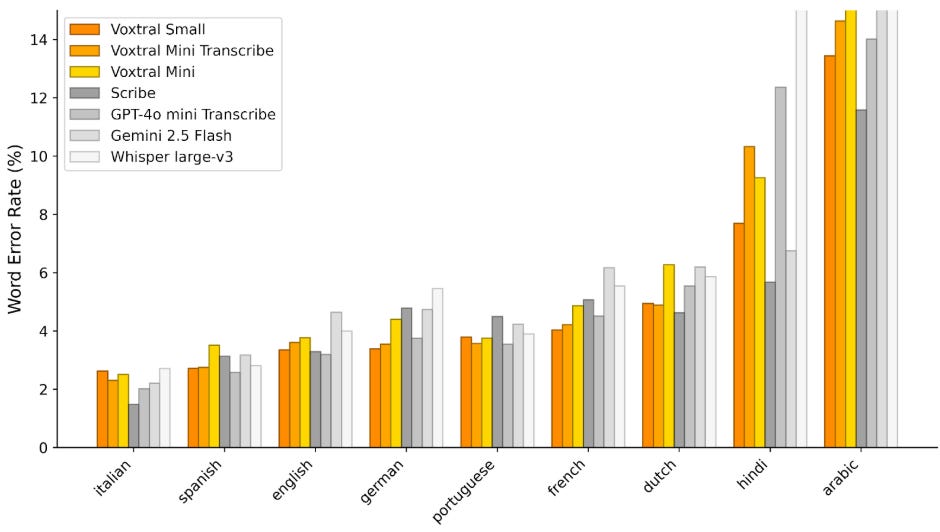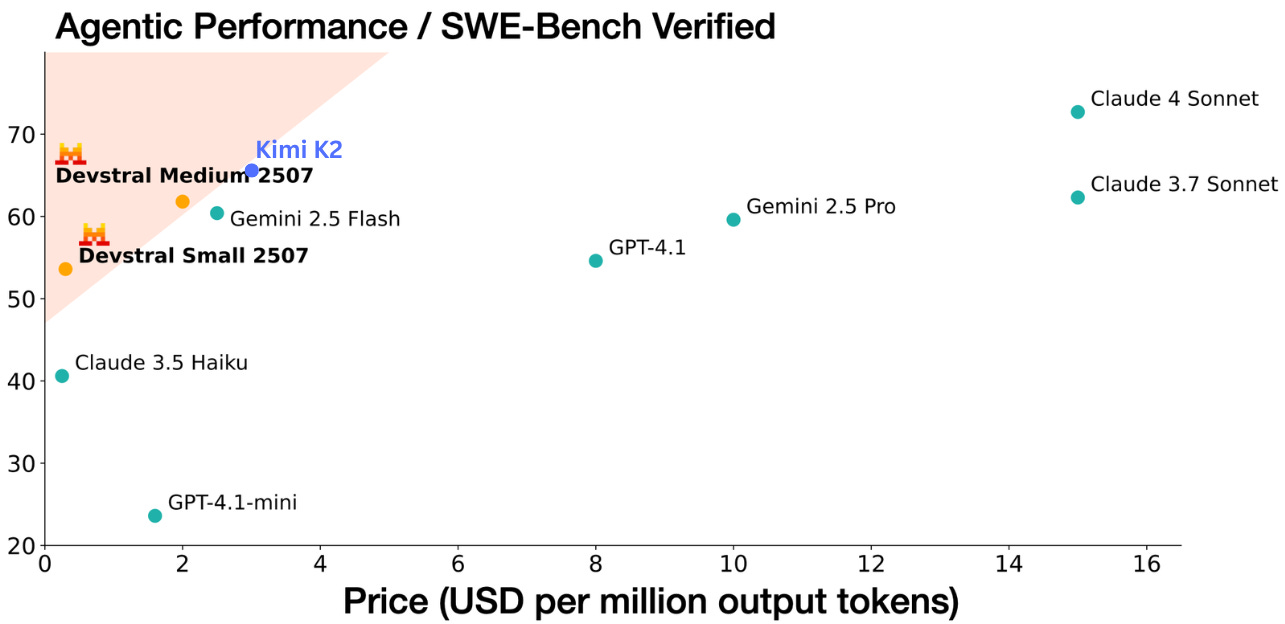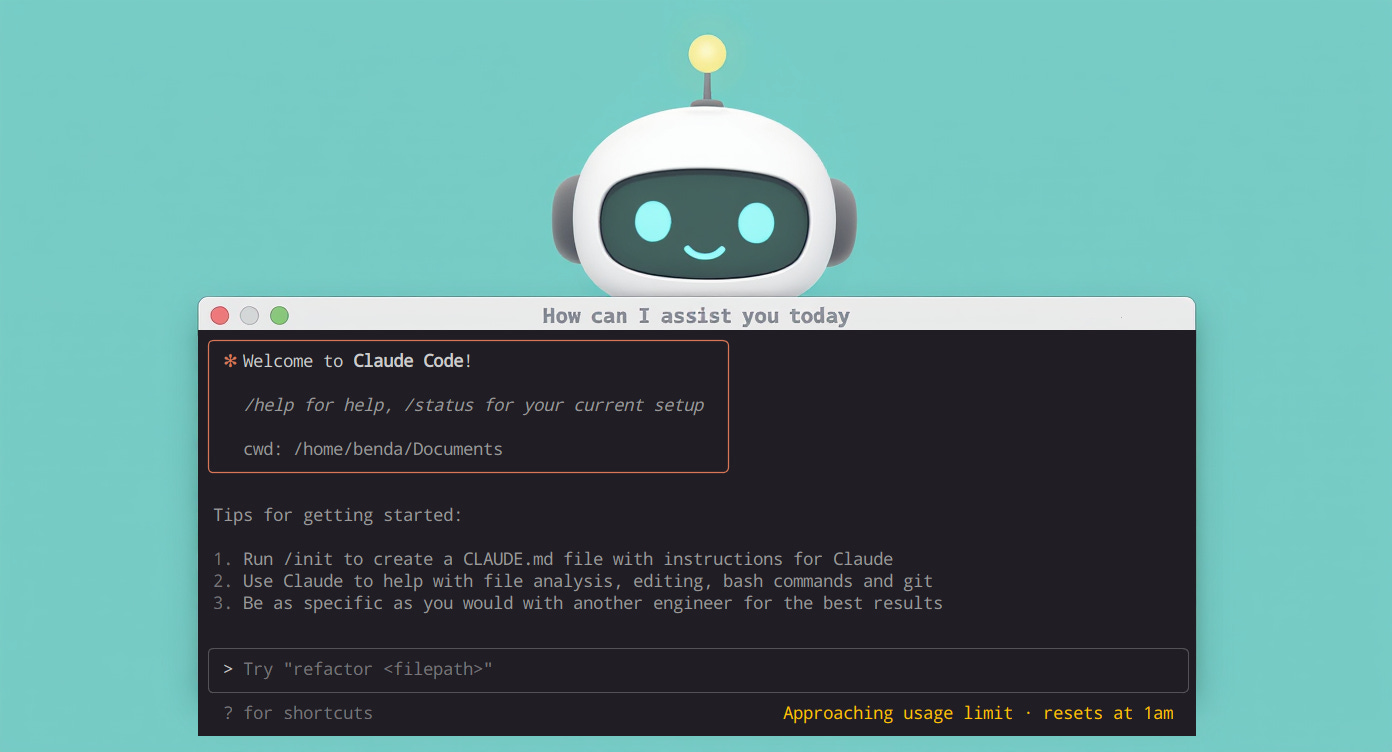🤝 How non-programmers become computer wizards
Dear curious mind,
This week's issue challenges the biggest misconception in AI today: Claude Code is only for programmers. While most non-developers are focused on chatbots and image generators, there's a quiet revolution happening right on your desktop. I’m talking about AI that doesn't just give you answers; it actually does the work for you, directly on your computer. From organizing your files to analyzing your meeting recordings, the barriers between you and your computer's full potential are disappearing faster than you might think.
In this issue:
💡 Shared Insight
Claude Code: Your AI Assistant for Everything on Your Computer
📰 AI Update
Voxtral: Mistral AI's Open Voice-to-Text Models Challenge Industry Leaders
MedGemma: Google's Open Medical AI Models Put Privacy First
Kimi K2: China's Latest AI Powerhouse Quietly Challenges the Giants
Mistral's Devstral Gets Major Coding Upgrades
💡 Shared Insight
Claude Code: Your AI Assistant for Everything on Your Computer
When Claude Code launched in February this year, many assumed it was just another tool for programmers. And yes, it is excellent at coding and creating computer programs. It runs in the terminal - that intimidating black window with green (or white) text that seems designed to scare away non-techies. But here's what most people are missing:
Claude Code isn't just for developers. It's an AI agent that can work with virtually anything on your computer, and you don't need to know a single line of code to harness its power.
Think of Claude Code as your personal digital assistant that actually understands your computer's file system. While ChatGPT can help you write text and answer questions, Claude Code can dive into your files, process them, analyze patterns, and create new outputs - all through simple conversation and without any copy and paste.
Real-World Magic, No Programming Required
Let me share some examples that have nothing to do with traditional programming. I've been using Claude Code to analyze video recordings of meetings and discussions. Here's how it works: I simply tell it, "Hey, I have these video recordings in this folder. Can you transcribe them and tell me about my communication patterns?" Claude Code then uses command-line tools to extract the audio, transcribe it, and provide insights about how I behave in discussions, extract action items, or identify recurring themes.
Another practical use case: converting videos for social media. Instead of learning complex video editing software or memorizing ffmpeg commands, I just tell Claude Code what I need: "Convert the latest video in this folder to an 𝕏-friendly format." It figures out the technical details and gets it done.
The beauty is that Claude Code can create its own tools when needed. If there isn't an existing command-line program for what you want, it can write a simple script to accomplish your task. You don't need to understand how it works; you just need to clearly communicate what you want to achieve.
Connecting to Your Digital Life
The power multiplies when you add MCP (Model Context Protocol) servers to the mix. These allow Claude Code to access specific services and data sources. Want it to check your calendar and create a summary of your week? Done. Need it to update your to-do list based on the meeting notes it just analyzed? No problem. The possibilities expand as far as your imagination allows.
Here's what makes this revolutionary: You're not just asking for a single command or a one-time solution. You're delegating entire workflows with its slash commands. Claude Code becomes your agent, using multiple tools in sequence to complete complex tasks that would normally require switching between different applications or learning specialized software.
Getting Started Is Easier Than You Think
The best part? If you have a Claude subscription from Anthropic, you already have access to Claude Code. There's no need to worry about API keys or surprise bills from token usage. It's included in your standard subscription, ready to use.
Yes, it runs in a terminal, but don't let that scare you. You're not typing cryptic commands; you're having a conversation. Tell Claude Code what you want to accomplish in plain English, and it handles the technical complexity. It's like having a highly skilled assistant who happens to speak fluent computer.
The Bottom Line
The terminal, once the exclusive domain of programmers, is now accessible to everyone through the power of conversational AI. Whether you're a writer wanting to analyze your work patterns, a researcher organizing data, or just someone trying to manage their digital life more efficiently, Claude Code is waiting to help.
So don't let the name fool you. Claude Code isn't just for coders; it's for anyone who wants to unlock the full potential of their computer without learning to program. The only limit is your imagination and your willingness to try something new. Trust me, once you experience the power of having an AI agent that can actually work with your files and data, you'll wonder how you ever managed without it.
📰 AI Update
Voxtral: Mistral AI's Open Voice-to-Text Models Challenge Industry Leaders (Mistral blog)

Mistral AI has released Voxtral, two open-source multilingual speech understanding models that go far beyond simple transcription. Available in a 24B parameter version for production use and a 3B parameter Mini version for local deployment. These models can handle up to 30 minutes of audio while providing standard transcription and also built-in Q&A and summarization. The models outperform the currently best open-source model, Whisper Large from OpenAI, and also compete with state-of-the-art proprietary models from OpenAI, Google, and ElevenLabs.
You can try it on Mistral's Le Chat platform (in the next couple of weeks) via API (starting at $0.001 per minute) or host the models locally via vLLM.
MedGemma: Google's Open Medical AI Models Put Privacy First [MedGemma documentation]
Google has released MedGemma, a collection of open-source AI models specifically designed for medical text and image comprehension, built on the Gemma 3 architecture. Available in three variants:
a 4B multimodal version,
a 27B text-only and
a 27B multimodal version.
These models can process everything from chest X-rays and pathology slides to patient records. What makes this particularly exciting for healthcare applications is that all models can run on a single GPU, with the smaller 4B version even adaptable for mobile hardware.
The ability to run powerful medical AI models locally, without sending sensitive patient data to the cloud, represents a significant step forward in making AI-assisted healthcare both accessible and privacy-preserving.
Kimi K2: China's Latest AI Powerhouse Quietly Challenges the Giants [Kimi K2 blog]
While DeepSeek's R1 dominated headlines in January, Chinese company Moonshot has quietly released Kimi K2, a 1T parameter model that shows impressive benchmark results. According to the shared evaluations, Kimi K2 delivers competitive performance in math and coding tasks, rivaling top closed models from OpenAI and Anthropic. Early users on 𝕏 are confirming these capabilities, with many praising its problem-solving abilities.
The model is released with a modified MIT License (asks to display "Kimi K2" for large corporations using the model), but the size makes local deployment impractical for most users. However, Kimi K2 is available at competitive prices (~$3 per million output tokens) through OpenRouter, making state-of-the-art AI accessible.
This release further demonstrates China's rapid advancement in AI and continues to narrow the gap between open and closed models.
Mistral's Devstral Gets Major Coding Upgrades [Mistral news]

Mistral AI, in collaboration with All Hands AI, has released significant upgrades to their Devstral coding models. Devstral Small 1.1, available under the Apache 2.0 license, achieves an impressive 53.6% on SWE-Bench Verified, setting a new state-of-the-art for open coding models. With just 24B parameters, it's perfect for running on high-end consumer GPUs and brings advanced AI-assisted coding capabilities to your local hardware.
While Devstral Medium shows even better performance at 61.6% on SWE-Bench Verified, it's unfortunately only available through Mistral's API. This is disappointing for those who prefer local deployment, though enterprises can arrange on-premise solutions with custom fine-tuning options.
Disclaimer: This newsletter is written with the aid of AI. I use AI as an assistant to generate and optimize the text. However, the amount of AI used varies depending on the topic and the content. I always curate and edit the text myself to ensure quality and accuracy. The opinions and views expressed in this newsletter are my own and do not necessarily reflect those of the sources or the AI models.

